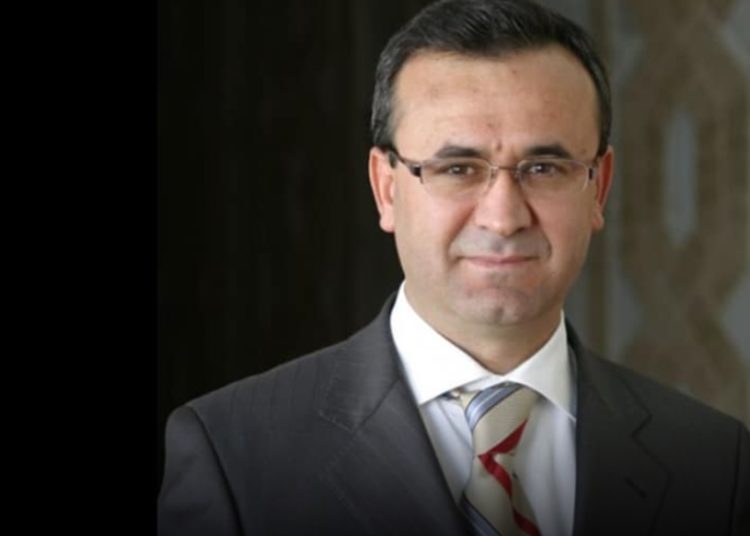Abdullah Bozkurt/Stockholm
A confidential 105-page Turkish government report obtained by Nordic Monitor confirms it was Turkish intelligence agency MIT that abducted and illegally transported a dual Turkish-Kyrgyz national who went missing in Bishkek on May 31, 2021.
The report, titled “Araştırma Tutanağı” (Investigation Record) and dated July 12, 2021, is the first official record confirming the illegal abduction of educator and government critic Orhan İnandı on foreign soil by Turkish spy agency MIT.
Although Turkish President Recep Tayyip Erdoğan publicly admitted MIT’s role and the state news agency confirmed MIT’s clandestine operation, the report is the first official and written record revealing MIT’s role in the kidnapping that violated international law as well as the laws of Kyrgyzstan.
According to the report, İnandı was turned over to the police for formal detention on July 6, 2021, meaning he was kept illegally at a black site for over a month during which he was most likely tortured and abused.
This is also confirmation of MIT’s unlawful conduct in blatant violation of Turkish law as the agency has no role in criminal proceedings and certainly has no right to abduct and hold a person incommunicado.
İnandı’s wife Reyhan posted a message on Twitter on August 7, 2021 saying that her husband was tortured and his right arm broken in three places by Turkish security officers. He has not received timely medical treatment and as a result can’t use his right arm.
The first photos of İnandı after he went missing was published by Turkish state news agency Anadolu. Handcuffed and forced to pose with Turkish flags, he appeared to have lost weight and had a swollen right hand.
Classified Turkish government report confirms the abduction of a critic from Kyrgyzstan by Turkish intelligence agency MIT:
The report refers to MIT as “Institution IV,” the name used to refer to the notorious spy agency in Turkish government documents, which has intensified illegal and clandestine operations in foreign countries in recent years, kidnapping and threatening critics of President Erdoğan.
MIT is run by Hakan Fidan, a former noncommissioned officer and Erdoğan confidant who has been a fan of Iran’s mullah regime since his youth. After taking over the agency in 2010, Fidan rebuilt the agency in his image, borrowing from the playbook of Iranian intelligence services in running ops.
Nordic Monitor previously reported on a secret report submitted to Iran’s Islamic Revolutionary Guard Corps (IRGC) Quds Force by a Turkish asset and long-time acquaintance of Fidan, who shared the mullahs’ revolutionary vision and harbored anti-US and anti-Israel sentiment.
“He [Fidan] wants to wipe the United States and Israel from the face of the earth, he loves the [Iranian] revolution, he wants it to succeed, he believes the [Iranian] revolution is under the control of Shiite Muslims with universal views and he loves them for it,” the profile note said of Fidan in a document handed over to the Quds Force.

İnandı is the founder and president of the prestigious Turkish-Kyrgyz Sapat school network operating in Kyrgyzstan. Starting his career as a history teacher in 1991 and serving in some managerial positions in educational institutions in Turkey, İnandı moved to Kyrgyzstan in 1995, after which he was offered a position as deputy principal in the Sapat schools. Marrying his wife Reyhan the same year, the couple has four children who still live in Kyrgyzstan.
The educator, who had been living in Kyrgyzstan for nearly three decades, was targeted because of his links to the Gülen movement, a group that is critical of the government of Turkish President Erdoğan on a range of issues including pervasive corruption and Turkey’s arming of jihadist groups.
Kyrgyzstan called on Turkey to return İnandı, and Ahmet Sadık Doğan, the Turkish ambassador in Bishkek, was summoned by Kyrgyz Foreign Minister Ruslan Kazakbaev upon an order from President Sadyr Japarov. Doğan was handed an official note of protest denouncing the abduction of İnandı.
Classified report about İnandı dated July 12, 2021:
The Kyrgyz authorities made clear to Turkey that such an action was unacceptable and violates the principles and norms of international law, human rights and freedoms enshrined in the Universal Declaration of Human Rights and the International Covenant on Civil and Political Rights.
The Turkish actions abroad sparked criticism and outrage. In a joint letter UN rapporteurs accused the Turkish government of engaging in the systematic practice of state-sponsored extraterritorial abductions and forcible returns to Turkey, with at least 100 Turkish nationals from multiple states including Afghanistan, Albania, Azerbaijan, Afghanistan, Cambodia, Gabon, Kosovo, Kazakhstan, Lebanon and Pakistan removed to Turkey.
In a number of cases the UN Working Group on Arbitrary Detention (WGAD) concluded that the arrest, detention and forced transfer to Turkey of Turkish nationals were arbitrary and in violation of international human rights norms and standards.

A recent report by Freedom House on global transnational repression also revealed the intensity, geographic reach and suddenness of the Turkish government’s campaign targeting dissidents abroad, noting that Turkey has become number one among countries that have conducted renditions from host states since 2014.
According to recent official statements by its interior ministry, Turkey has sent 800 extradition requests to 105 countries since the attempt, and more than 110 alleged members of the movement have been brought back to Turkey as part of the government’s global campaign.












